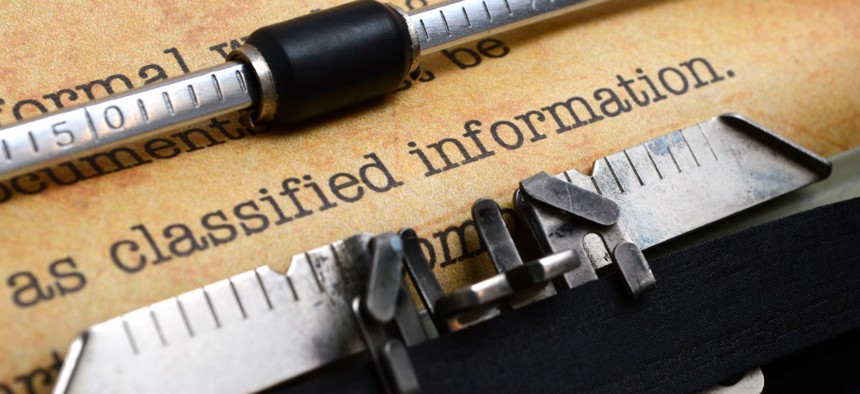
alexskopje / Shutterstock.com
GAO Gets More Transparent By Publishing List of Restricted Reports
Inventory of titles from the past year is aimed at helping lawmakers and Hill staff.
Congress’ watchdog agency has made public for the first time an online list of the titles of its reports—primarily intelligence community-related—that are restricted and can be released only by special arrangement with lawmakers and their staff.
“The following products have been determined to contain either classified information or controlled unclassified information by the audited agencies and cannot be publicly released,” GAO said of the new openness, a year in the making. “This list is intended to keep Congress, federal agencies and the public informed of the existence of these products.”
The list, which dates back to September 2014 and will be updated, appears under a new link labeled “Restricted Products” on GAO’s homepage. The listings do not include reports that focus on a single intelligence agency but instead favor those focused on questions GAO is considering that affect broader intelligence issues, a GAO staffer told the secrecy news blog published by the Federation of American Scientists.
“The thrust of the effort is to be sure those authorized to read such reports are aware of their existence,” GAO public affairs Managing Director Chuck Young said in an email to Government Executive. “We heard from some members of Congress that they were not always aware of such reports if they were not on the direct committee that requested them.”
In addition, “we wanted to follow best practices in the IG community where such report titles are typically published,” Young said. “As has been the case, it will still be our approach, pending the classification and sensitivity reviews conducted by the appropriate agencies, to try to issue public versions of products with classified and [single business unit] material removed. These reports are posted on our website and are publicly available.”
Sample titles include, “Nuclear Nonproliferation: DOE Made Progress to Secure Vulnerable Nuclear Materials Worldwide, but Opportunities Exist to Improve Its Efforts,” and “Littoral Combat Ship: Knowledge of Survivability and Lethality Capabilities Needed Prior to Making Major Funding Decisions.”
Though GAO is not required to release reports under the Freedom of Information Act, the agency will take public requests into account.
Restricted GAO titles from 1971-2011 were obtained and published this April by the nonprofit GovernmentAttic.org.
(Image via alexskopje / Shutterstock.com)







